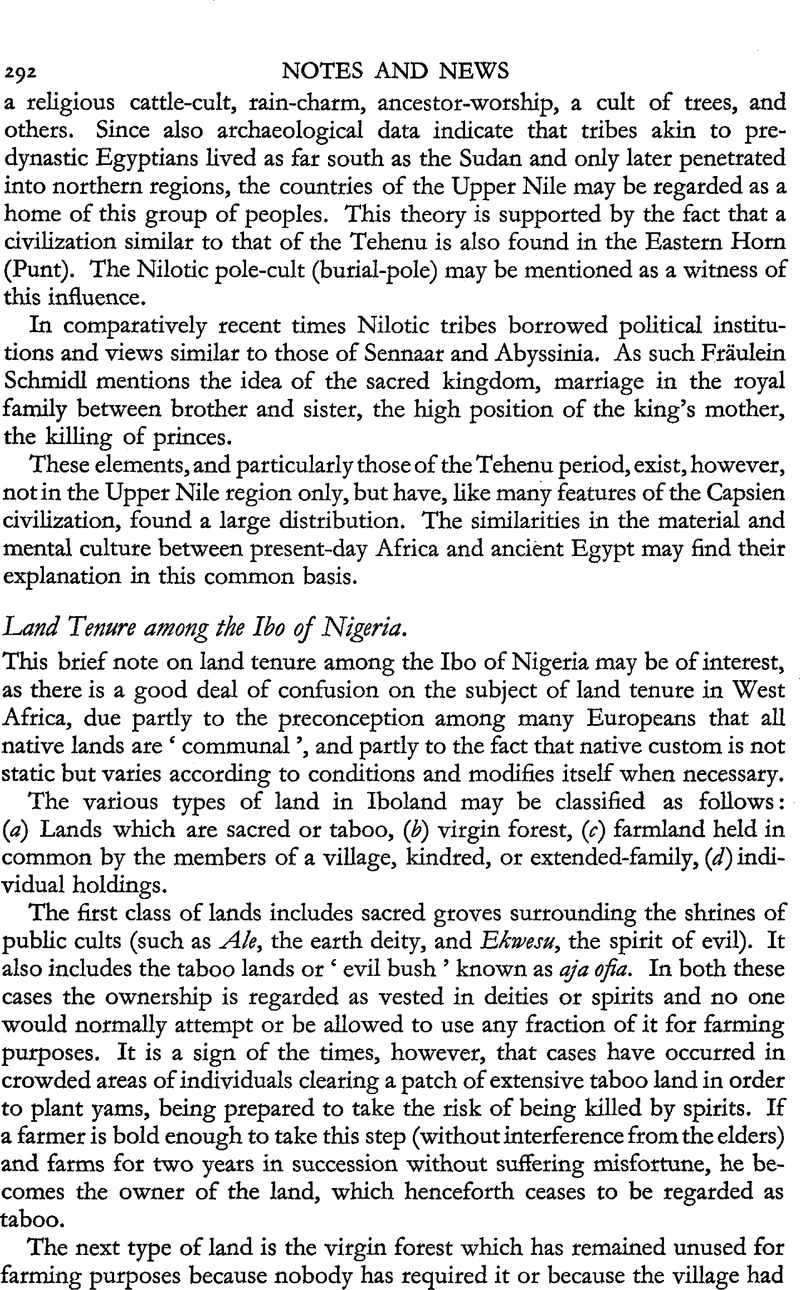No CrossRef data available.
Published online by Cambridge University Press: 21 August 2012

page 293 note 1 Cf. Laws of Manu (India): ‘He who clears a piece of land is the owner of it’ (ix. 44).
page 293 note 2 Unless it is so extensive that formal division is unnecessary.
page 293 note 3 Thus at Adâyi (Nsukka Division) land is so abundant that most of it is held communally and the necessity has not arisen for apportioning it out to families and individuals.
page 293 note 4 The head of a family may have to pledge a piece of family land to pay off a debt left by the previous head, and he may insist on doing so against the wishes of the family, if the family has offered no assistance in paying off the debt.
page 294 note 1 e.g. Oil palms, coco nuts, oil bean, and mahogany trees.
page 294 note 2 It is surprising therefore that Archdeacon Basden who has lived among the Ibo for 34 years should have stated at the International Congress of Anthro pological Sciences that among the Ibo the ancestors do not appear to have much influence on land tenure. They have a great deal of influence.
page 294 note 3 But not of course until after harvest if the land is under cultivation. A pledgee at Akabo (and no doubt other localities) is protected against arbitrary treatment by a rule that if the owner of the land demands its return before it has been farmed he has to refund twice the amount of the loan he had received.